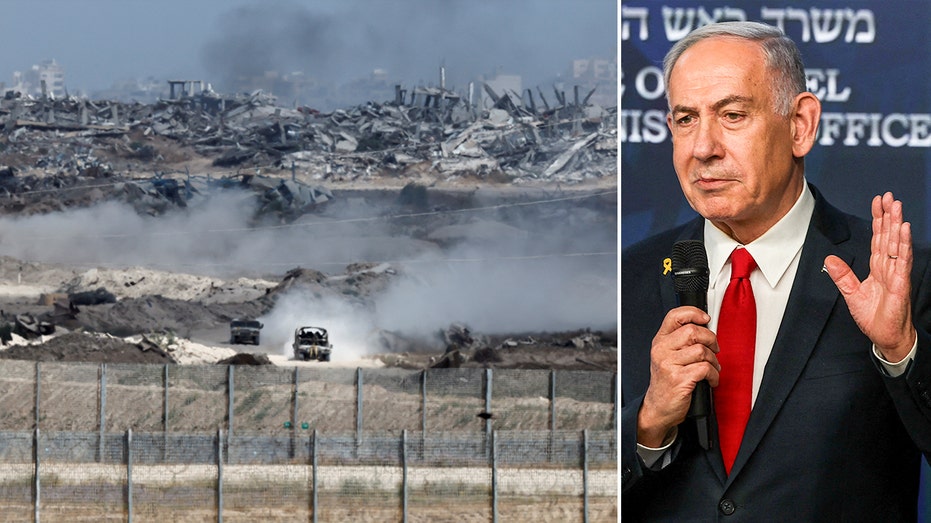Former Israeli Government Spokesperson Warns Israel Faces 'Impossible Bind' Amid Gaza Crisis
Former Israeli spokesperson Eylon Levy warns Israel faces an "impossible dilemma" between rescuing hostages and defeating Hamas.

After more than eighteen months of conflict, Israel is grappling with a difficult predicament as it seeks both the defeat of Hamas and the safe return of hostages still held in Gaza. Eylon Levy, a former spokesperson for the Israeli government, described the situation as an "impossible dilemma," emphasizing the pressures facing Jerusalem on both military and humanitarian fronts.
In a recent interview, Levy argued that ensuring Hamas does not remain in power is essential for any lasting peace. “If this war ends with the Hamas regime that perpetrated October 7th still in power, it won't end, it will just pause, and the next war will be a matter of time,” he stated. According to Levy, most Israelis are desperate for an end to hostilities but believe that true stability depends on the total defeat of Hamas. Anything less, he warned, risks further bloodshed and future wars.
International criticism has intensified as the war drags on. Earlier this month, the United Kingdom, France, and Canada issued a joint statement urging Israel to end its military operations in Gaza. London went so far as to suspend bilateral trade talks with Jerusalem over concerns about the ongoing conflict. Israeli Prime Minister Benjamin Netanyahu responded sharply, accusing British Prime Minister Keir Starmer, French President Emmanuel Macron, and Canadian Prime Minister Mark Carney of being “on the wrong side of humanity.”
Levy defended Israel’s position against mounting international pressure, arguing that critics must provide viable alternatives for ousting Hamas, rather than simply condemning Israel’s actions. “Anyone criticizing Israel needs to come up with a better plan for how you remove Hamas from power, because otherwise they're just giving it political power and trying to save [it] from the war that it started,” he said.
The issue of hostages remains at the heart of the crisis. Many Israelis remain held underground in Gaza, and their families continue to press the government for action. The international community has urged Israel to negotiate exchanges, often involving the release of Palestinian prisoners. Levy acknowledged the agonizing calculus involved, noting that such deals risk incentivizing further hostage-taking. “Hamas is demanding the hostage-takers of tomorrow for the hostages of today. It’s an impossible dilemma,” he explained.
Levy also criticized what he sees as hypocrisy from Western nations applying pressure for Israel to pay ransoms for hostages. “Most countries don’t pay ransoms to terrorist hostage-takers because they understand it only incentivizes more hostage-taking… Israel has paid a ransom to get hostages out in two cease-fires because we say we know the dangers, we know it’s risky, but we’ve got to get out these poor people who are being starved and tortured,” he said.
Over the course of the war, some initial international allies have cooled their support for Israel’s campaign against Hamas. Levy believes that as the reality of removing Hamas from power became clearer, many countries became hesitant to maintain their backing. He questioned if Israel should have defied global opposition earlier, suggesting that bolder action may have yielded faster results—even as he acknowledged the difficult consequences of such a path.
The threat to hostages remains acute. Former captives report that their lives were threatened whenever Israeli forces drew near, and several—including American-Israeli Hersh Goldberg-Polin—were killed before they could be rescued. These stories underscore the peril faced by those remaining in captivity and the complexity of efforts to free them.
Not all international relationships have soured, however. A shift in the U.S. administration has led to changes in Washington’s tone. With the return of Donald Trump to the presidency, Levy notes a sense among Israelis that American support is stronger and more unconditional, although there is also speculation that the U.S. may push for a swift conclusion to the conflict. Since Trump’s return, dozens of hostages—including American-Israelis Keith Siegel, Sagui Dekel-Chen, and Edan Alexander—have been released.
As Israel continues its military campaign while negotiating for the lives of hostages, the government faces wrenching decisions. For Levy and many in Israel, the conflicting demands mean there are no easy answers: "We cannot afford to pay this ransom, but we also can't afford not to pay it." The war in Gaza thus grinds on, with no clear solution in sight for Israel’s "impossible dilemma."




